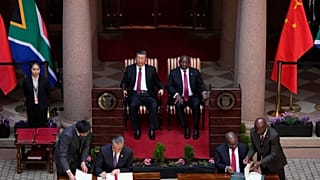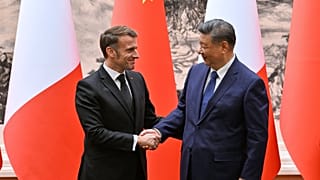China
The city of Xuchang, in China's Henan province, is known as the global wig capital producing about 60 per cent of them worldwide.
With over 4,100 hair product companies and 300,000 people working in the industry, it has made a name for itself in this niche market.
Most of the wigs are made with human hair, with one purchaser saying that in early days, she bought mostly from people in rural households.
The city has been producing wigs for hundreds of years.
"Many see wigs as something to cover up a problem. But they were originally accessories for aristocrats, designed to enhance beauty and elevate one's status,” says Zhang Tianou, executive vice-president of Rebecca Hair Products.
He says that before 1989, the company operated solely as a component supplier to the United States market, exposing it to significant single-market risks.
“But seeing wigs as a daily necessity, like shirts or sneakers, for the African diaspora, we decided to develop the African market," he says.
Xuchang’s wigs have become sought after items in Africa, Europe, the United States and elsewhere.
In 2024, the city exported over $2 billion worth of hair products, including to a shop in the Kenyan capital, Nairobi.
Its owner, Fiona, says that at first it was a bit scary importing from Rebecca Fashion, but now she is very happy.
"Rebecca Fashion has been serving us diligently, and mostly in the booming market. And the speciality of our wigs is nobody, no producer, no manufacturer here in Kenya has been able to do a replica of what we have," she says.
Hair has been an indicator of wealth and nobility since ancient times with the first documented use of extensions and wigs dating back to Ancient Egypt.












01:39
Education emerges as Africa’s top priority at World Government Summit
01:00
Pix of the Day January 28, 2026
02:23
Kenyan court dismisses compensation claim by victims of 1998 Nairobi bombing
00:47
US YouTube star IShowSpeed celebrates 21st birthday in Lagos
01:00
Ai Weiwei launches first solo exhibition in India
Go to video
US House passes 3-year AGOA extension but South Africa's inclusion is unclear